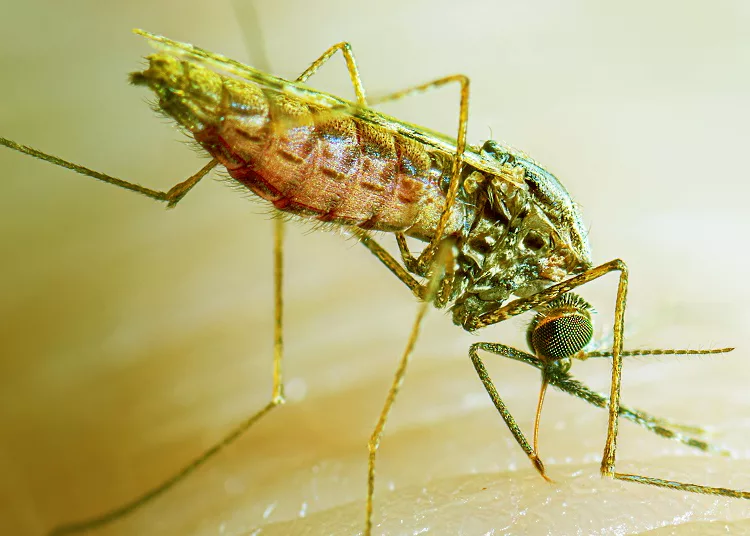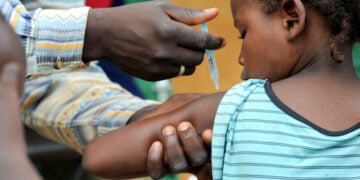As Nigeria joined the rest of the world to mark the World Malaria Day, stakeholders in the health sector have reiterated the call for malaria prevention and control.
Malaria is a public health concern in Nigeria, being one of the leading causes of morbidity and mortality in the country.
The World Health Organisation (WHO) estimates that Nigeria had nearly 67 million cases in 2022 accounting for 27 percent of the global malaria burden. Also in 2022, Nigeria accounted for 31 percent of global deaths and 38 percent of global deaths in children aged under 5 years.
WHO said malaria has disproportionately affected the most vulnerable populations, namely, pregnant women, infants, children under five years of age, refugees, migrants, and internally displaced people, perpetuating cycles of poverty and inequity.
However, WHO country representative in Nigeria, Dr Walter Kazadi Molumbo, said amidst these challenges, there is cause for hope. „Under the guidance of the Federal Ministry of Heath/ National Malaria Elimination Programme (NMEP) we have made remarkable strides in malaria control and prevention, thanks to the tireless dedication of individuals and organizations across the country.
Through robust surveillance, innovative interventions, and strengthened health systems, we have saved countless lives and prevented untold suffering.“
In the same vein, the USAID/Nigeria mission director, Melissa Jones, said as a result of the Malaria Presidential Initiative (MPI) procuring and distributing 90 million insecticide-treated bed nets, over 180 million Nigerians are now protected from malaria.
The mission director disclosed this on Thursday at the 2024 World Malaria Day press briefing, with the theme: Accelerating the Fight Against Malaria for a More Equitable World.“ in Abuja.
She also said that three million children under five years of age were protected from malaria, after PMI assisted in administering 35 million doses of malaria preventive treatment.
According to her, since 2000, in Nigeria, malaria deaths decreased from 194,000 in 2021 to 188,480 in 2022, adding that prevention of malaria in Nigeria has contributed to the overall global success of the PMI program.
She, therefore, urged the federal government to recognise malaria as a priority within the sector wide approach (SWAp) and its sgn finance to the achievement of the strategic vision for the health sector (202—2026).
She also urged the government and private sector to invest in making malaria programming more efficient and effective using data and other evidence to inform malaria implementation and drive faster results.
Together, through unwavering collaboration and relentless dedication, we can envision a Nigeria where every child sleeps under a mosquito net without fear, where every community has access to life-saving treatment, and where the burden of malaria is but a distant memory., said Jones.
The World Malaria Day is observed annually on 25 April, to bring global attention to the efforts being made to eradicate malaria, and encourage action to reduce suffering and death from the disease.
In Nigeria, where malaria remains a significant public health challenge, the celebration of World Malaria Day is particularly crucial, said the Federal Ministry of Health and Social Welfare.
The ministry identified malaria prevention strategies as distribution of Insecticide-treated bed nets (ITNs), Indoor Residual Spraying (IRS), Intermittent Preventive Treatment in Pregnancy (IPTp), prompt diagnosis and treatment.
It said „ITNs are a key intervention for malaria prevention in Nigeria. The government, in collaboration with international partners and NGOs, conducts mass distribution campaigns to ensure widespread access to ITNs, especially among vulnerable populations such as children and pregnant women.
IRS is another malaria control strategy used in Nigeria, particularly in areas with high transmission rates. This involves spraying insecticides on the interior walls of houses to kill mosquitoes and reduce their breeding and biting rates.
IPTp is recommended for pregnant women in Nigeria to prevent malaria-related complications. This involves administering a course of antimalarial medication, usually sulfadoxine-pyrimethamine, to pregnant women during antenatal care visits.
Ensuring timely diagnosis and treatment of malaria cases is essential for reducing morbidity and mortality.





